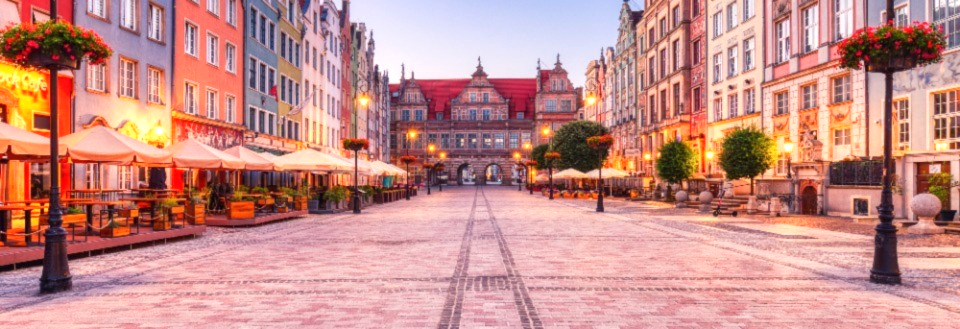Zimbabwe is a double-edged safari paradise for anyone who dreams of African wildlife. The country is one of the few in Africa which has such an abundance of animals that people are actually allowed to shoot elephants, lions and buffaloes in the large National Parks. Whatever your feelings concerning this archaic practice, there is much 'still living' that is well worth a visit in this country. �
Republic of Zimbabwe
Harare
390.580 km2
The principal language in Zimbabwe is English, but actually, the population speaks shona or sindebele to a much higher degree.
Christianity and the original animism of the region.�
11.163.160 (1999)
Parliamentary democracy
Zimbabwe has tall mountains in the East and swamp areas in the West, while the savannah of the South offers completely different scenery. The Zambezi River and Victoria Falls form the natural border towards Zambia, while the grey-green muddy Limpopo River divides Zimbabwe from South Africa. Some of Africa's most beautiful National Parks give ideal possibilities to observe the large amount of predators and their prey.
For people interested in safaris, it is best to go to Zimbabwe during the dry winter months of May to October, when the animals gather by the pools. On the other hand, during the wet summer months it is more green and lush and somewhat hotter.
�
Lonely Planet Zimbabwe, Botswana & Namibia�
Zimbabwe Dollars (Z)
1 Dollar = 100 cents
You can find Internet cafés in most large cities.
To call for emergency in Zimbabwe you must dial the following numbers:
Emergencies in general (999)
Police (995)
Ambulance (994)
Fire department (993)
It is normal to give between 10 and 15 percent in tipping, but in some places, they have begun putting 10 percent on top of the price themselves. If so, it will say so on your receipt.
When it is 12.00 in Britain (summer time), it is 13.00 in Zimbabwe.
When it is 12.00 in Britain (wintertime), it is 14.00 in Zimbabwe.
In Zimbabwe they use the following weights and measures:
Weights: kilogram
Temperature: °Celsius
Distances: kilometre
Cubic content: litre
Avoid taking pictures of military installations, public buildings, foreign embassies and airports.
The tap water is not safe unless it has been boiled.
In Zimbabwe they use the following current:
220 V AC, 50 Hz
�
It is illegal to import pornography to Zimbabwe. Furthermore, quite a lot of the nicest restaurants demand that men wear suit and tie.
Banks are open from 8.00 to 15.00 (Monday, Tuesday, Thursday and Friday), from 8.00 to 13.00 (Wednesday) and from 8.00 to 11.30 (Saturday).
Shops are open from 8.00 to 17.00 (Monday to Friday) and from 8.00 to 13.00 on Saturday.
Corn is a highly valued crop in Zimbabwe, and one of the national dishes in Zimbabwe is sadza, a firm corn porridge that is eaten with gravy or flesh. They drink the corn beer 'whawha' with it. �
There are very few facilities for disabled travellers in Zimbabwe.�
New Years Day, 1 January
Independence Day, 18 April
1 May
Africa Day, 25 May
Heroes Day, 11 August
Defence Forces' Day, 12 August
Christmas Day, 25 December
Boxing Day, 26 December
Holidays than vary
Easter, March or April
It is possible to camp in all the major National Parks and along the river.
You will find hotels in most towns in this country. The very big first class hotels are primarily to be found in the big cities, though. The hotels are divided into five star categories.
Guesthouses can be found in the tourist places and in the National Parks. Furthermore, it is possible to find B&Bs in quite a few towns.
There are cheap hostels in quite a few places in Zimbabwe.
Air Zimbabwe handles domestic flights between Harare and, among others, Bulawayo and Victoria Falls, Kariba, Hwange, Gweru, Maswingo and Buffalo Range. There are 467 runways in Zimbabwe. Furthermore, it is possible to charter a plane to get to the National Parks.
There are bus connections between all the major cities. Information about departures, services and timetables can be obtained at the tourist office in Harare.
There are train connections between Plumtree, Bulawayo, Victoria Falls, Harare, Mutare and Triangle. It is often cheaper than the bus.
Most taxis in Zimbabwe do not have a taxi-meter; so settling the price before getting into the taxi is sensible. There are taxi companies in all the major towns. �
There are car rental services in big hotels and in airports as well as in offices in the major cities. It is usually quite expensive, especially the 4Ws which are often necessary to get around this country.
Camouflage clothing is illegal in Zimbabwe.
It is not possible for foreigners to pay for their hotel in Zimbabwe Dollars. Payment must be made by credit card or by a foreign currency, usually US $.
